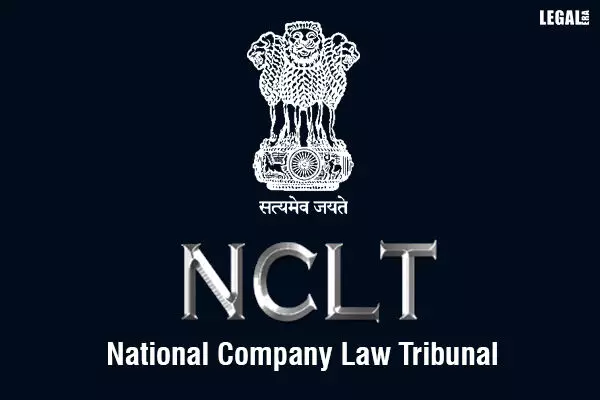- Home
- News
- Articles+
- Aerospace
- Artificial Intelligence
- Agriculture
- Alternate Dispute Resolution
- Arbitration & Mediation
- Banking and Finance
- Bankruptcy
- Book Review
- Bribery & Corruption
- Commercial Litigation
- Competition Law
- Conference Reports
- Consumer Products
- Contract
- Corporate Governance
- Corporate Law
- Covid-19
- Cryptocurrency
- Cybersecurity
- Data Protection
- Defence
- Digital Economy
- E-commerce
- Employment Law
- Energy and Natural Resources
- Entertainment and Sports Law
- Environmental Law
- Environmental, Social, and Governance
- Foreign Direct Investment
- Food and Beverage
- Gaming
- Health Care
- IBC Diaries
- In Focus
- Inclusion & Diversity
- Insurance Law
- Intellectual Property
- International Law
- IP & Tech Era
- Know the Law
- Labour Laws
- Law & Policy and Regulation
- Litigation
- Litigation Funding
- Manufacturing
- Mergers & Acquisitions
- NFTs
- Privacy
- Private Equity
- Project Finance
- Real Estate
- Risk and Compliance
- Student Corner
- Take On Board
- Tax
- Technology Media and Telecom
- Tributes
- Viewpoint
- Zoom In
- Law Firms
- In-House
- Rankings
- E-Magazine
- Legal Era TV
- Events
- Middle East
- Africa
- News
- Articles
- Aerospace
- Artificial Intelligence
- Agriculture
- Alternate Dispute Resolution
- Arbitration & Mediation
- Banking and Finance
- Bankruptcy
- Book Review
- Bribery & Corruption
- Commercial Litigation
- Competition Law
- Conference Reports
- Consumer Products
- Contract
- Corporate Governance
- Corporate Law
- Covid-19
- Cryptocurrency
- Cybersecurity
- Data Protection
- Defence
- Digital Economy
- E-commerce
- Employment Law
- Energy and Natural Resources
- Entertainment and Sports Law
- Environmental Law
- Environmental, Social, and Governance
- Foreign Direct Investment
- Food and Beverage
- Gaming
- Health Care
- IBC Diaries
- In Focus
- Inclusion & Diversity
- Insurance Law
- Intellectual Property
- International Law
- IP & Tech Era
- Know the Law
- Labour Laws
- Law & Policy and Regulation
- Litigation
- Litigation Funding
- Manufacturing
- Mergers & Acquisitions
- NFTs
- Privacy
- Private Equity
- Project Finance
- Real Estate
- Risk and Compliance
- Student Corner
- Take On Board
- Tax
- Technology Media and Telecom
- Tributes
- Viewpoint
- Zoom In
- Law Firms
- In-House
- Rankings
- E-Magazine
- Legal Era TV
- Events
- Middle East
- Africa
NCLT Chandigarh Validates Undated Bankers Book Evidence Act Certificate Under IBC

NCLT Chandigarh Validates Undated Bankers Book Evidence Act Certificate Under IBC
The National Company Law Tribunal (NCLT), Chandigarh Bench, consisting of Mr. Harnam Singh Thakur (Judicial Member) and Mr. L.N. Gupta (Technical Member), has determined that an undated certificate under the Bankers Book Evidence Act, 1891 (Act) qualifies as a valid certificate for Regulation 2A of the Insolvency and Bankruptcy Board of India (Insolvency Resolution Process for Corporate Persons) Regulations, 2016 (IBBI Regulations).
Canara Bank (Applicant) provided debt to Laggar Industries Limited (Respondent) amounting to Rs. 23.5 crores through the approval of an open cash credit facility, bank guarantee, and overdraft facility against bill discounting.
Following the non-payment of dues, Canara Bank classified Laggar Industries Limited's account as a non-performing asset (NPA) on April 1, 2018. Subsequently, the bank issued a default recall notice for the invocation of guarantees, demanding payment of the defaulted amount from Laggar Industries Limited and other obligors. Additionally, it served a notice under Section 13(2) of the Securitization and Reconstruction of Financial Assets and Enforcement of Security Interest Act, 2002.
Subsequently, Canara Bank filed an application under Section 7 of the Insolvency and Bankruptcy Code, 2016 (Code) read with Rule 4 of the Insolvency and Bankruptcy (Application to Adjudicating Authority) Rules, 2016 to commence the Corporate Insolvency Resolution Process (CIRP) against the Respondent.
The respondent opposed the application by arguing that the statement of account lacked certification by a valid certificate under the Act. It contended that the attached certificate could not be considered valid due to the absence of a date on it.
The NCLT acknowledged the respondent's arguments regarding the validity of an undated certificate issued under the Act and referred to the contents of the submitted certificate.
After reviewing the contents of the certificate, the NCLT dismissed the respondent's argument and affirmed that the certificate issued under the Act was properly signed. The Tribunal concluded that the absence of a date would not render the certificate invalid under Regulation 2A of the IBBI Regulations.
In conclusion, the NCLT determined that an undated certificate issued under the Bankers Book Evidence Act, 1891, is valid for the purposes of Section 7(3)(a) of the Code, in conjunction with Regulation 2A of the IBBI Regulations. Consequently, the Tribunal initiated CIRP proceedings against the respondent.
- #NCLT
- #Chandigarh Bench
- #Insolvency
- #Bankruptcy
- #Bankers Book Evidence Act
- #IBBI Regulations
- #Canara Bank
- #Laggar Industries Limited
- #NPA
- #CIRP
- #Debt
- #Non Performing Asset
- #Default
- #Securitization
- #Reconstruction
- #Financial Assets
- #Security Interest Act
- #Legal Proceedings
- #Certificate Validity
- #Code Section 7
- #Legal Ruling
- #Corporate Insolvency Resolution Process



